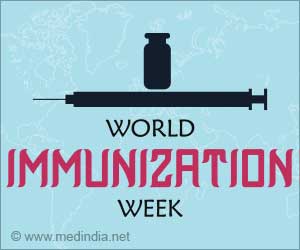Highlights
- Long term use of anti-hypertensive medication containing Hydrochlorothiazide can increase the risk of skin cancer upto seven times
- Hydrochlorothiazide is one of the most commonly used anti-hypertensive medicines both in the US and in Western Europe
- Hydrochlorothiazide drug is known to make skin more vulnerable to damage from sun’s UV rays
The researchers have also looked at other commonly used hypertension medicines, but none of them increased the risk of skin cancer.
"We knew that Hydrochlorothiazide made the skin more vulnerable to damage from the sun’s UV rays, but what is new and also surprising is that long-term use of this blood pressure medicine leads to such a significant increase in the risk of skin cancer," says Anton Pottegård, Associate Professor, PhD, from the University of Southern Denmark, who is the initiator of the study.
The study, which is based on about 80,000 Danish cases of skin cancer, shows that the risk of developing skin cancer is up to seven times greater for users of medicine containing Hydrochlorothiazide.
There are several types of skin cancer. And squamous cell carcinoma, which the blood pressure medicine is now associated with, can luckily be treated and has a very low mortality rate.
Hydrochlorothiazide is one of the most commonly used medicines to reduce blood pressure both in the US, where over ten million people use the drug annually, and in Western Europe. The side effects can therefore affect numerous people, and the researchers have calculated that about 10 percent of all Danish cases of squamous cell carcinoma may be caused by Hydrochlorothiazide.
As part of the project, the Danish researchers partnered with Dr. Armand B. Cognetta Jr., Chief Division of Dermatology, Florida State University, who is the head of one of the largest treatment centres for skin cancer in the US. Dr. Cognetta has extensive experience in diagnosing and treating skin cancer patients in Florida, and he has noted that Hydrochlorothiazide is suspiciously prevalent among his patients, particularly among so-called "catastrophic patients", who can have several hundred skin cancers each. He welcomes the new results.
"We have seen and followed many patients with different skin cancers where the only risk factor apart from exposure to sunlight seems to be Hydrochlorothiazide. The combination of living and residing in sunny Florida while taking Hydrochlorothiazide seems to be very serious and even life-threatening for some patients.
Even though we knew that Hydrochlorothiazide made you sensitive to the sun, the connection between this medicine and skin cancer has remained elusive. The study carried out by Pottegård and his colleagues will have great impact on skin cancer prevention and public health world-wide," he explains.
The researchers continue to work on studies that can shed additional light on the connection between Hydrochlorothiazide and skin cancer. Furthermore, they have entered into a dialogue with relevant medical companies as well as the Danish Medicines Agency regarding their findings.
"The risk of skin cancer must, of course, be weighed against the fact that Hydrochlorothiazide is an effective and otherwise safe treatment for most patients. Nevertheless, our results should lead to a reconsideration of the use of Hydrochlorothiazide. Hopefully, with this study, we can contribute towards ensuring safer treatment of high blood pressure in the future," concludes Anton Pottegård.
Reference
- Sidsel Arnspang, David Gaist, Sigrun Alba Johannesdottir Schmidt, Lisbet Rosenkrantz Holmich, Soren Friis, Anton Pottegard. Hydrochlorothiazide use and risk of non-melanoma skin cancer: A nationwide case control study from Denmark, Journal of the American Association of Dermatology (2017) .DOI:10.1016/j.jaad.2017.11.042
Source-Eurekalert
















